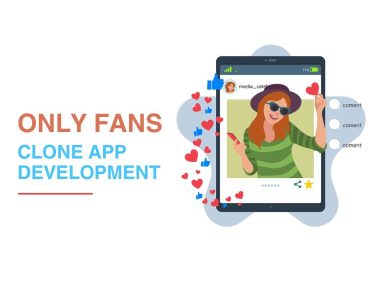In today’s digital age, social media has become an indispensable tool for businesses aiming to foster customer engagement. The landscape of marketing has been dramatically transformed by platforms like Facebook, Instagram, Twitter, LinkedIn, and TikTok, offering brands unprecedented opportunities to connect with their audience. This article delves into how brands are leveraging social media for customer engagement, highlighting key strategies and benefits.
The Importance of Social Media Customer Engagement
Social media customer engagement refers to the interactions between a brand and its customers on social media platforms. These interactions can range from likes, shares, and comments to direct messages and mentions. High levels of engagement are often indicative of a strong relationship between the brand and its audience, leading to increased loyalty, better customer retention, and ultimately, higher sales.
Building a Community
One of the primary ways brands leverage social media for customer engagement is by building a community. Social media platforms offer a unique space where brands can foster a sense of belonging among their audience. By creating groups, pages, and forums, brands can encourage discussions, share valuable content, and provide a space for customers to interact with each other and the brand.
For instance, beauty brand Glossier has successfully built a community on Instagram by encouraging customers to share their makeup looks using the hashtag #Glossier. This not only increases engagement but also provides the brand with user-generated content, which is often more authentic and relatable than traditional advertising.
Content That Resonates
Creating content that resonates with the audience is crucial for social media customer engagement. Brands need to understand their audience’s preferences, interests, and pain points to produce content that is relevant and engaging. This can include a mix of educational posts, entertaining videos, behind-the-scenes looks, and user-generated content.
Nike, for example, excels at creating inspirational content that resonates with its audience. By sharing stories of athletes overcoming challenges, the brand not only engages its followers but also reinforces its brand values of determination and perseverance.

Interactive Features
Social media platforms are equipped with a variety of interactive features that brands can use to boost customer engagement. Polls, quizzes, live videos, and interactive stories are just a few examples of tools that can make interactions more dynamic and engaging.
Instagram Stories, in particular, offer a plethora of interactive features. Brands can use question stickers to gather feedback, polls to understand customer preferences, and countdown stickers to build anticipation for upcoming events or product launches. These features make the interaction more fun and engaging for the audience.
Personalized Interactions
Personalization is key to effective social media customer engagement. Brands that take the time to respond to comments, address customer queries, and acknowledge mentions can foster a stronger connection with their audience. Personalized interactions make customers feel valued and appreciated, which can significantly enhance their loyalty to the brand.
Starbucks is a brand that excels at personalized interactions on social media. The company frequently responds to customer comments and queries, often addressing them by name. This level of personalization helps to create a more intimate and engaging customer experience.
Influencer Partnerships
Partnering with influencers is another effective strategy for leveraging social media for customer engagement. Influencers have a loyal following and can help brands reach a wider audience. By collaborating with influencers who align with their brand values, companies can create authentic and engaging content that resonates with the audience.
Fashion brand Fashion Nova, for example, has built a strong presence on social media through influencer partnerships. By collaborating with a diverse range of influencers, the brand has been able to engage with a broad audience and build a loyal customer base.
Social Listening
Social listening involves monitoring social media platforms for mentions of the brand, its products, and its competitors. This strategy allows brands to gain valuable insights into customer sentiments, preferences, and pain points. By actively listening to their audience, brands can identify opportunities for engagement and address any issues promptly.
Tools like Hootsuite, Sprout Social, and Brandwatch enable brands to track mentions and analyze social media conversations. This information can be used to tailor content, improve customer service, and develop more effective engagement strategies.
Contests and Giveaways
Contests and giveaways are a popular way to boost social media customer engagement. These activities encourage participation and interaction, often resulting in increased reach and visibility for the brand. By offering attractive prizes, brands can incentivize their audience to engage with their content and share it with their network.
For instance, travel brand Airbnb frequently runs contests on Instagram, encouraging users to share their travel photos using a specific hashtag. This not only increases engagement but also generates a wealth of user-generated content that the brand can use in its marketing efforts.
Leveraging Analytics
To effectively leverage social media for customer engagement, brands need to track and analyze their performance. Social media analytics tools provide valuable insights into engagement metrics, such as likes, shares, comments, and reach. By analyzing this data, brands can identify what types of content resonate with their audience and refine their strategies accordingly.
Platforms like Facebook Insights, Twitter Analytics, and Instagram Insights offer comprehensive analytics that brands can use to measure their performance. By regularly reviewing these metrics, brands can make data-driven decisions to enhance their social media customer engagement efforts.
Conclusion
In conclusion, social media offers a wealth of opportunities for brands to engage with their customers. By building a community, creating resonant content, leveraging interactive features, personalizing interactions, partnering with influencers, practicing social listening, running contests and giveaways, and utilizing analytics, brands can foster strong relationships with their audience. Effective social media customer engagement not only enhances brand loyalty but also drives business growth, making it an essential component of any modern marketing strategy.




